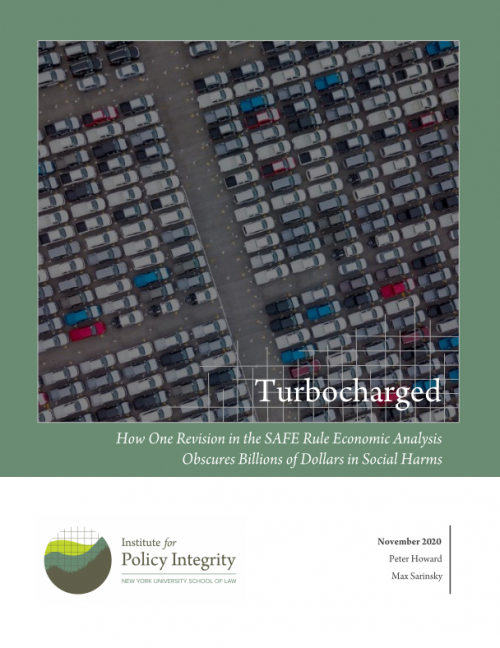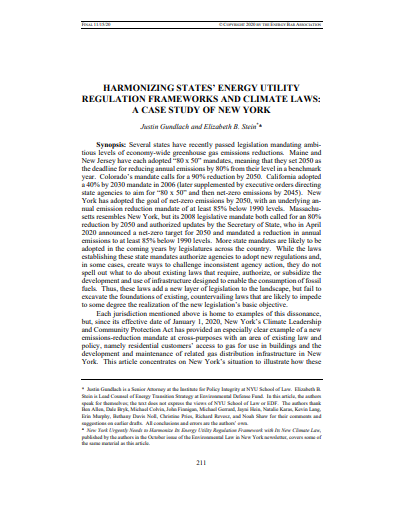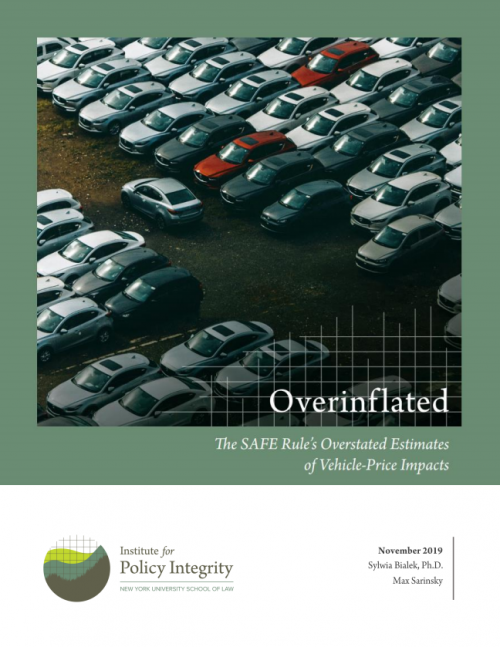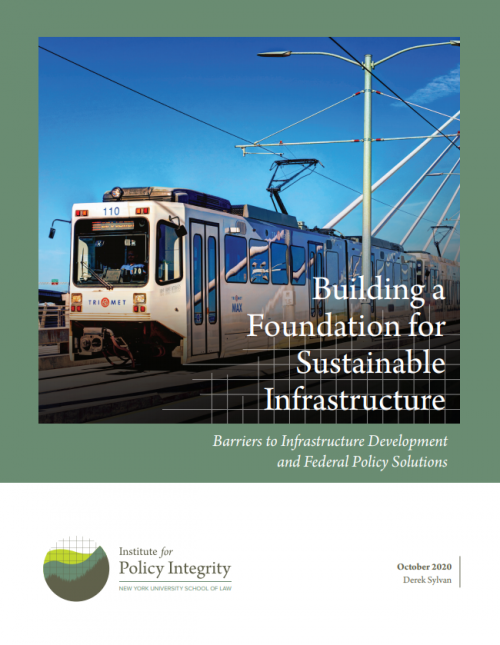-
Report Series: the Flawed Analysis Underlying the Rollback of the Clean Car Standards
The Environmental Protection Agency and National Highway Traffic Safety Administration used several gimmicks and faulty assumptions to skew the analysis of the rollback rule, obscuring just how harmful it is to the American public. We published a series of reports examining several of the flaws.
-
Comments and Reply Comments on FERC’s Carbon Pricing Policy Statement
The Federal Energy Regulatory Commission proposed a policy statement on carbon pricing in organized wholesale electricity markets. We submitted comments encouraging FERC to strengthen its proposal by making specific clarifications. We later submitted reply comments addressing points made by other commenters and providing further guidance on how FERC can improve its final policy statement.
-
Turbocharged
How One Revision in the SAFE Rule Economic Analysis Obscures Billions of Dollars in Social Harms
This report is part of a series that documents how the assumptions underlying The Safer Affordable Fuel Efficient (SAFE) Vehicles Final Rule for Model Years 2021–2026 Passenger Cars and Light Trucks are skewed to make the rule look less harmful than it actually is. In this report, we focus on the rule’s estimate of vehicle sale price elasticity, which substantially inflates the rollback’s effect on new vehicle purchases.
-
Comments to New York DEC on the Value of Carbon
New York State's Department of Environmental Conservation (DEC) has adopted a damage-cost approach to valuing carbon dioxide pollution. We submitted comments on the DEC's draft guidance supporting the policy. Our comments also raise points about the appropriate use of discount rates, calculating damages for other greenhouse gases, inclusion of co-benefits in analysis, and further considerations for a marginal abatement cost approach.
-
Amicus Brief in Ninth Circuit on Montana Coal Mine Expansion
The expansion of the Bull Mountains Mine project in Montana would allow for an increase in coal production likely resulting in more than $9 billion in climate damages. We filed an amicus brief in the U.S. Court of Appeals for the Ninth Circuit criticizing the Office of Surface Mining’s analysis of the project, which fails to monetize climate impacts using the social cost of carbon. We explain that the project’s full economic benefit is, at most, just one-third of its expected climate costs.
-
Harmonizing States’ Energy Utility Regulation Frameworks and Climate Laws
A Case Study of New York
Unless the institutional framework and laws pertaining to fossil fuels are modified appropriately, decarbonization efforts will likely be stymied by confusion and related opportunities for opposition. This article, published in the Energy Law Journal, aims to start a wider conversation about the process of conforming existing energy law with novel, climate-oriented legislation. We concentrate on New York’s situation to illustrate how these tensions can manifest and what might be done to address them.
-
Overinflated
The SAFE Rule’s Overstated Estimates of Vehicle-Price Impacts
This report is part of a series that documents how the assumptions underlying The Safer Affordable Fuel Efficient (SAFE) Vehicles Final Rule for Model Years 2021–2026 Passenger Cars and Light Trucks are skewed to make the rule look less harmful than it actually is. In the SAFE Rule, the Environmental Protection Agency and the National Highway Traffic Safety Administration have significantly rolled back the greenhouse gas emission and fuel economy standards for light vehicles established under the Obama Administration. This report highlights three critical problems in the agencies’ assumptions about vehicle prices.
-
Presidential Transition Guidance
As the presidential transition begins, the Institute for Policy Integrity has outlined recommended policy priorities for the Biden administration on climate, energy, and environmental policy, and related social equity outcomes. It is crucial that the incoming administration undertake aggressive reforms that are grounded in science and economics. In recent months, we published a series of reports highlighting actionable, near- and medium-term policy recommendations in several key areas.
-
Building a Foundation for Sustainable Infrastructure
Barriers to Infrastructure Development and Federal Policy Solutions
Most categories of American infrastructure—from transportation and water systems to public school buildings and electricity meters—are in dire need of modernization, and climate change is compounding this challenge. Our report provides policy recommendations at each stage of the infrastructure lifecycle, from project planning and analysis, through financing, construction, and maintenance. We explain how a realigned approach to infrastructure can boost the economy while addressing threats from climate change and prioritizing social equity goals.
-
Comments on Climate Damages from Farmington Mancos-Gallup RMP
The Bureau of Land Management and the Bureau of Indian Affairs forecast that resource management in New Mexico's Farmington Mancos-Gallup region would produce more than 300 million metric tons of cumulative greenhouse gas emissions under their preferred alternative. Our joint comments explain that the agencies should better evaluate the proposal's climate impacts using the social cost of greenhouse gases. We also submitted comments focused on the agencies' obligation to conduct environmental justice analysis under Executive Order 12,898.
Viewing recent projects in Climate and Energy Policy










